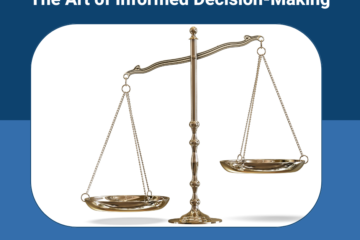
Introduction
Do you want to be a leader who stands out? Leadership is a hard job that requires passion, commitment, and a clear sense of why you’re doing it. It’s not a job you can play well if you don’t give it your all. But how can you figure out how much you want to lead on your own? The Leadership Motivation Assessment helps with this. Read on to find out how this test can show how motivated you are and how to understand your score.
Leadership Motivation Assessment: The Methodology
Introduction to the Test
This Leadership Motivation Assessment aims to measure your enthusiasm and readiness for taking on leadership roles. The assessment consists of 20 statement-based questions covering a variety of aspects related to leadership, such as decision-making, conflict resolution, interpersonal skills, and self-confidence.
For each statement, select the response that best represents your feelings or thoughts. Here are the options:
Strongly Disagree
Disagree
Neither Agree Nor Disagree
Agree
Strongly Agree
The 20 Statements

1. I enjoy taking the initiative in team settings.
Strongly Disagree Disagree Neither Agree Nor Disagree Agree Strongly Agree
2. The thought of making critical decisions excites me rather than scares me.
Strongly Disagree Disagree Neither Agree Nor Disagree Agree Strongly Agree
3. I thrive in situations where I am responsible for the success of a project.
Strongly Disagree Disagree Neither Agree Nor Disagree Agree Strongly Agree
4. I find it easy to inspire others toward achieving a common goal.
Strongly Disagree Disagree Neither Agree Nor Disagree Agree Strongly Agree
5. I am comfortable with taking calculated risks.
Strongly Disagree Disagree Neither Agree Nor Disagree Agree Strongly Agree
6. I actively seek out opportunities to lead rather than follow.
Strongly Disagree Disagree Neither Agree Nor Disagree Agree Strongly Agree
7. I am not afraid to voice my opinion, even if it is unpopular.
Strongly Disagree Disagree Neither Agree Nor Disagree Agree Strongly Agree
8. I am good at resolving conflicts among team members
Strongly Disagree Disagree Neither Agree Nor Disagree Agree Strongly Agree.
9. I feel energized, not drained, after leading a challenging task or project.
Strongly Disagree Disagree Neither Agree Nor Disagree Agree Strongly Agree
10. I can adapt my leadership style to meet the needs of my team.
Strongly Disagree Disagree Neither Agree Nor Disagree Agree Strongly Agree
11. I feel confident in my ability to guide others.
Strongly Disagree Disagree Neither Agree Nor Disagree Agree Strongly Agree
12. I prefer roles where I can exercise influence and control.
Strongly Disagree Disagree Neither Agree Nor Disagree Agree Strongly Agree
13. I value the opportunity to mentor and develop others.
Strongly Disagree Disagree Neither Agree Nor Disagree Agree Strongly Agree
14. I believe that my ethical compass guides me well in leadership roles.
Strongly Disagree Disagree Neither Agree Nor Disagree Agree Strongly Agree
15. I have a clear vision of what I want to achieve as a leader.
Strongly Disagree Disagree Neither Agree Nor Disagree Agree Strongly Agree
16. I am willing to sacrifice my personal time to achieve leadership success.
Strongly Disagree Disagree Neither Agree Nor Disagree Agree Strongly Agree
17. I actively seek feedback to improve my leadership skills.
Strongly Disagree Disagree Neither Agree Nor Disagree Agree Strongly Agree
18. I am able to keep a team focused and motivated, even when things get tough.
Strongly Disagree Disagree Neither Agree Nor Disagree Agree Strongly Agree
19. I am more concerned with team success than individual recognition.
Strongly Disagree Disagree Neither Agree Nor Disagree Agree Strongly Agree
20. I am continuously learning and growing in my capacity as a leader.
Strongly Disagree Disagree Neither Agree Nor Disagree Agree Strongly Agree
Scoring
After responding to all the statements, tally up your score. Each response corresponds to a score:
Strongly Disagree: 1 point
Disagree: 2 points
Neither Agree Nor Disagree: 3 points
Agree: 4 points
Strongly Agree: 5 points
Score Interpretation
80-100: High Motivation – You have a strong drive to lead and are well-suited for leadership roles.
60-79: Moderate Motivation – You have some motivation to lead but might benefit from addressing areas of hesitancy or concern.
40-59: Low to Moderate Motivation – Leadership roles may not be your primary interest at this time; consider whether you’re in the right path.
20-39: Low Motivation – Leadership may not be the best fit for you right now; other roles may be more fulfilling.
Remember, the test is a snapshot of your current motivation level. Motivation can change over time and with different experiences. Feel free to revisit this assessment as you progress in your leadership journey.
Key Points to Consider in Leadership Motivation
Motivation is Crucial
Motivation isn’t just a nice trait for a boss to have; it’s an essential one. Leadership comes with a lot of challenges, from resolving disagreements to making long-term plans and strategies. If you don’t want to take on these duties, your lack of motivation will show, which will hurt your team’s morale and productivity. Also, a leader who is motivated is more likely to encourage his or her team members, which leads to better performance and group cohesion.
Intrinsic vs Extrinsic Motivation
There are two main types of motivation: internal and extrinsic. Motivation that comes from within is called “intrinsic.” It’s the pleasure of doing something just because it’s fun. In the context of leadership, this could mean the joy of teaching others, the thrill of making something important, or the happiness of helping a team do well.
Extrinsic motivation, on the other hand, is a result of external factors like money, promotions, or social recognition. Even though these benefits are important and can give you more motivation, they shouldn’t be the main reason you want to lead. Depending only on things outside of yourself to motivate you can lead to burnout and a lack of real interest in your job and team.
Ongoing Assessment
As a boss, your path isn’t one that stays the same. Instead, it’s dynamic and always changing. How content you are with your work, how well you balance work and life, and how many opportunities you have to advance professionally can all have an impact on your desire to lead. For example, a new job that challenges you may give you more drive, while changes in your personal life may make you less driven.
So, it’s important to check in on your drive every so often. Self-evaluation can help you stay on track with your leadership goals and job goals. If you lose drive, figuring out why can help you fix the problem before your performance or that of your team gets worse.
Transparent Communication
Even the most experienced leaders have low and high drive at different times. If you’re having trouble keeping your drive to lead, it’s important to talk to your team and your bosses about it.
Why does this matter? First, it’s a sign of emotional intelligence to notice and admit that you’re having problems. Second, recognizing the problem makes it possible to talk about it and find possible answers. Whether it’s a temporary handing off of some duties, specialized training, or even a short sabbatical, there are many ways to rekindle your love for leadership.
Conclusion:
Leadership takes more than just skills; it also requires a strong desire to make a difference. The Leadership Motivation Assessment is a great way to find out where you stand and what steps you might need to take to have a happy leadership journey. Remember that a leader who is driven is often an effective leader. So, evaluate, interpret, and move forward with confidence on your road to becoming a leader.



0 Comments